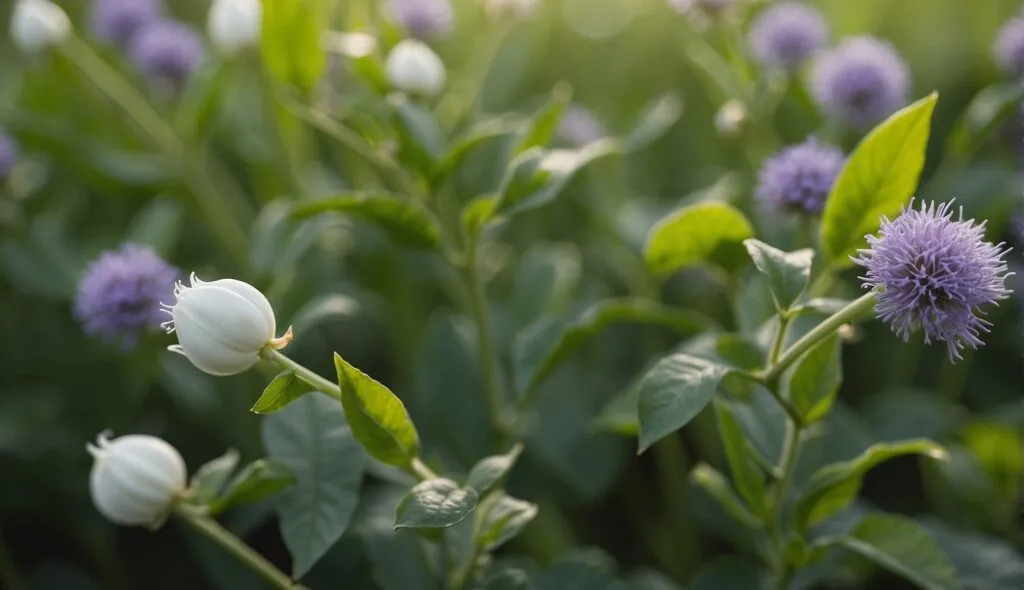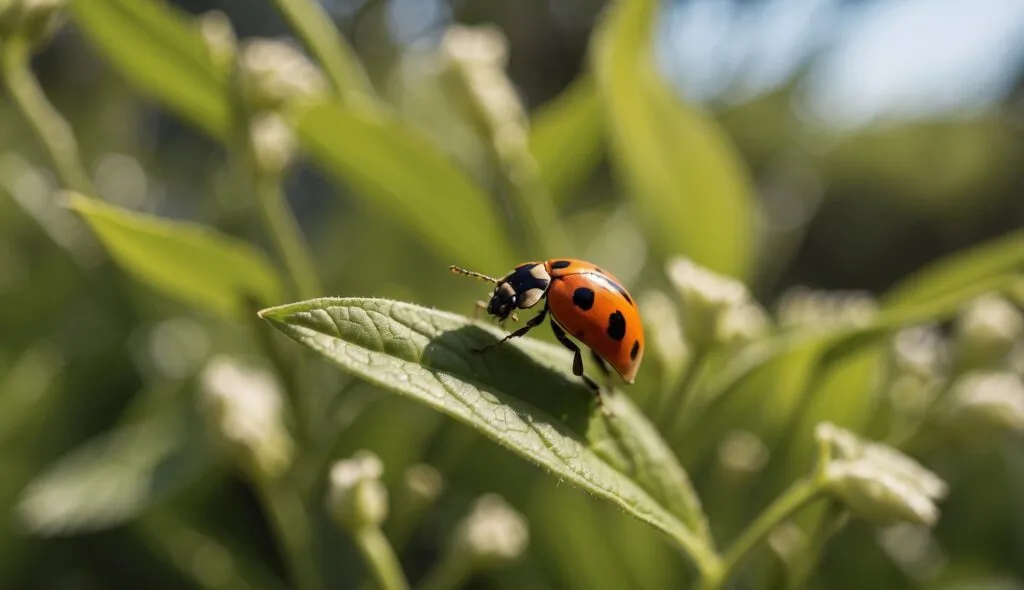Pests can be a nuisance, and traditional pest control methods often rely on harsh chemicals that can harm the environment and our health. As we strive to create a more sustainable and eco-friendly world, our methods to control pests have come under scrutiny. Fortunately, there are many natural and non-toxic solutions available to keep pests at bay.
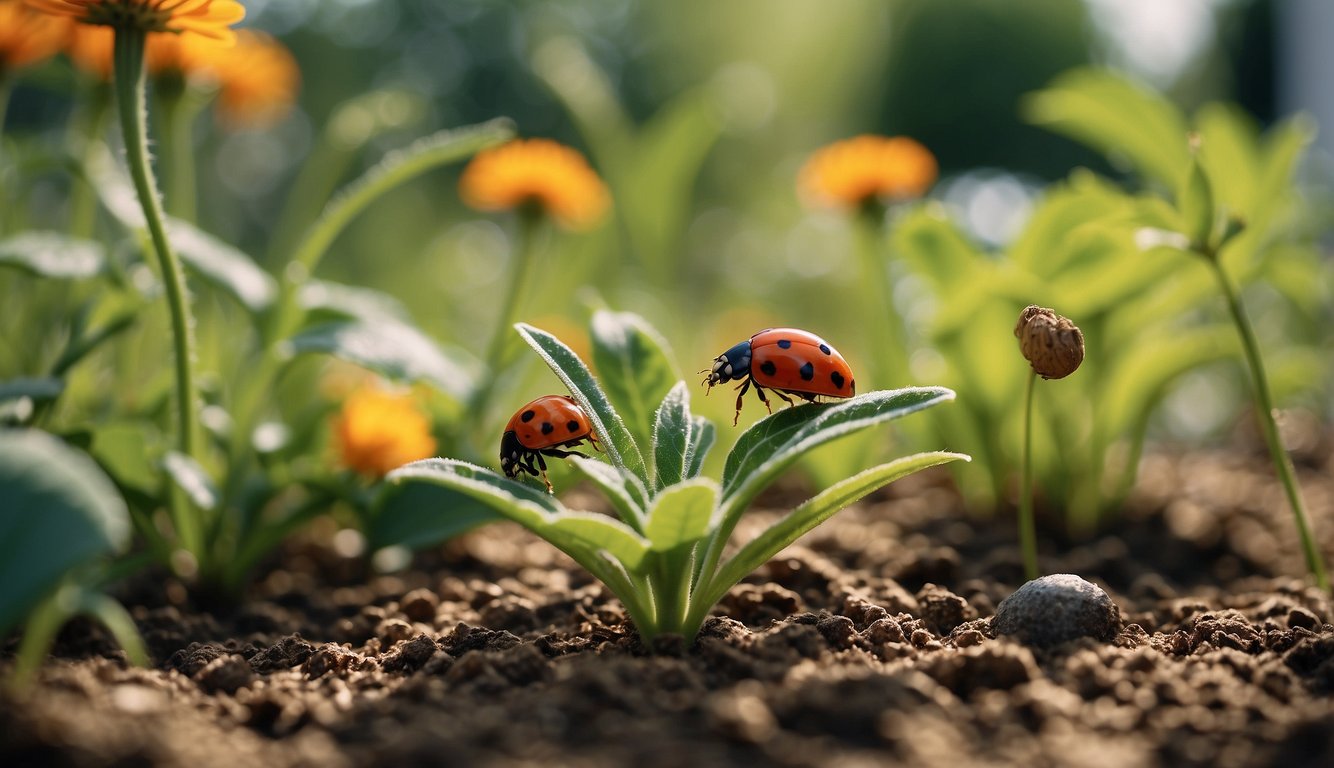
Understanding pests and their impact is the first step in sustainable pest management. Pests can cause damage to our homes, gardens, and crops, and some can even spread diseases. Integrated pest management (IPM) is a holistic approach that focuses on prevention, monitoring, and control to minimize the use of pesticides. This approach involves identifying the type of pest, its lifecycle, and its behavior to implement the most effective control method.
Natural and non-toxic solutions are gaining popularity as people become more aware of the impact of chemicals on the environment and our health. These solutions include biological and cultural control methods, such as introducing natural predators, using pheromone traps, and rotating crops. Preventive measures, such as sealing cracks and gaps, removing food sources, and maintaining cleanliness, can also help prevent infestations. In addition, there are many DIY pest control recipes and techniques that use common household items like vinegar, baking soda, and essential oils.
Table of Contents
Key Takeaways
- Integrated pest management is a holistic approach that focuses on prevention, monitoring, and control to minimize the use of pesticides.
- Natural and non-toxic solutions include biological and cultural control methods, preventive measures, and DIY pest control recipes and techniques.
- Sustainable pest management is important for the environment and our health, and there are many effective and eco-friendly solutions available.
Understanding Pests and Their Impact
As sustainable farmers, we recognize that pests are a natural part of the environment and play a crucial role in maintaining ecosystem balance. However, some pests can have harmful effects on our crops, causing significant economic losses. Therefore, it is important to understand the impact of pests and how to manage them sustainably.
Insects are the most common pests in agriculture, and they can cause direct damage to crops by feeding on leaves, stems, and fruits. Some insects can also transmit diseases, further damaging the crops. However, not all insects are harmful. Some insects, such as ladybugs and lacewings, are beneficial insects that prey on harmful insects and help control their populations.
Pests can also have indirect impacts on the environment. For example, the use of pesticides to control pests can harm natural predators and pollinators, disrupting the ecosystem balance. Therefore, we need to adopt sustainable pest management strategies that minimize the use of pesticides and promote natural pest control.
One sustainable pest management strategy is to encourage natural predators. Natural predators, such as birds and spiders, can help control pest populations by feeding on them. We can create habitats for these predators by planting hedgerows and providing nesting boxes.
Another strategy is to use biological control agents, such as nematodes and fungi, to control pests. These agents are natural enemies of pests and can be used to reduce their populations without harming the environment.
In summary, pests can have harmful impacts on our crops and the environment. However, we can manage them sustainably by adopting strategies that promote natural pest control and minimize the use of pesticides. By doing so, we can maintain a healthy ecosystem and ensure the long-term sustainability of our farms.
Natural and Non-Toxic Solutions
When it comes to pest control, we understand the importance of using natural and non-toxic solutions. Not only are they safer for the environment, but they also protect our plants and crops from harmful chemicals. Here are some of the best natural and non-toxic solutions for sustainable pest control:
Diatomaceous Earth
Diatomaceous Earth is a natural and effective solution for controlling pests. It is made from the fossilized remains of diatoms, which are a type of algae. When diatomaceous earth comes into contact with insects, it dehydrates them, causing them to die. It is safe for use around humans and pets but should be used with caution around beneficial insects.
Neem Oil
Neem oil is derived from the seeds of the neem tree and is a popular natural insecticide. It is effective against a wide range of pests, including aphids, spider mites, and whiteflies. Neem oil works by disrupting the insect’s hormonal system, making it difficult for them to feed and reproduce. It is safe for use around humans and pets, but caution should be taken when applying it to plants, as it can cause burning in high concentrations.
Ladybugs
Ladybugs are a natural predator of many garden pests, including aphids, mites, and whiteflies. They are a great addition to any garden, as they can help control pest populations without the use of harmful chemicals. Ladybugs can be purchased online or at your local garden center and released into your garden to help control pest populations.
Garlic
Garlic is a natural and effective insect repellent. It works by emitting a strong odor that repels pests like aphids, whiteflies, and spider mites. Simply crush a few cloves of garlic and mix with water to create a spray. Apply the spray to your plants to help repel pests.
Essential Oils
Essential oils like peppermint, lavender, and eucalyptus are natural insecticides that can be used to control pest populations. They work by disrupting the insect’s nervous system, making it difficult for them to feed and reproduce. Essential oils can be mixed with water and applied to plants to help control pest populations.
Vinegar
Vinegar is a natural and effective solution for controlling pests like slugs and snails. It works by disrupting their slime trails, making it difficult for them to move. Simply mix vinegar with water and spray it on affected areas to help control pest populations.
Overall, using natural and non-toxic solutions for pest control is not only safer for the environment but also helps protect our plants and crops from harmful chemicals. By incorporating these solutions into our pest control strategies, we can create a more sustainable and eco-friendly garden.
Biological and Cultural Control Methods
When it comes to sustainable pest control, biological and cultural control methods are two of the most effective approaches. These methods rely on natural means to manage pests, rather than relying on synthetic chemicals that can harm the environment.
Biological Control Strategies
Biological control involves using living organisms to control pests. This can include predators, parasitic wasps, nematodes, bacteria, fungi, and other biological agents. These organisms can help to reduce pest populations without harming the environment.
One example of biological control is the use of praying mantis or lacewings to control insect pests. These insects are natural predators that can help to keep pest populations in check. Another example is the use of nematodes to control soil-dwelling pests.
Cultural Control Techniques
Cultural control involves using non-chemical means to manage pests. This can include companion planting, crop rotation, and using the right plants for the environment. Companion planting involves planting certain crops together that can help to repel pests or attract beneficial insects. Crop rotation involves planting different crops in the same area each year to help prevent the buildup of pests and diseases in the soil.
Using the right plants for the environment can also help to reduce pest problems. For example, planting plants that are native to the area can help to attract beneficial insects and reduce the need for pesticides.
Overall, biological and cultural control methods are effective approaches to sustainable pest control. By using natural means to manage pests, we can reduce the impact of synthetic chemicals on the environment and promote a healthier ecosystem.
Preventive Measures and Pest Management
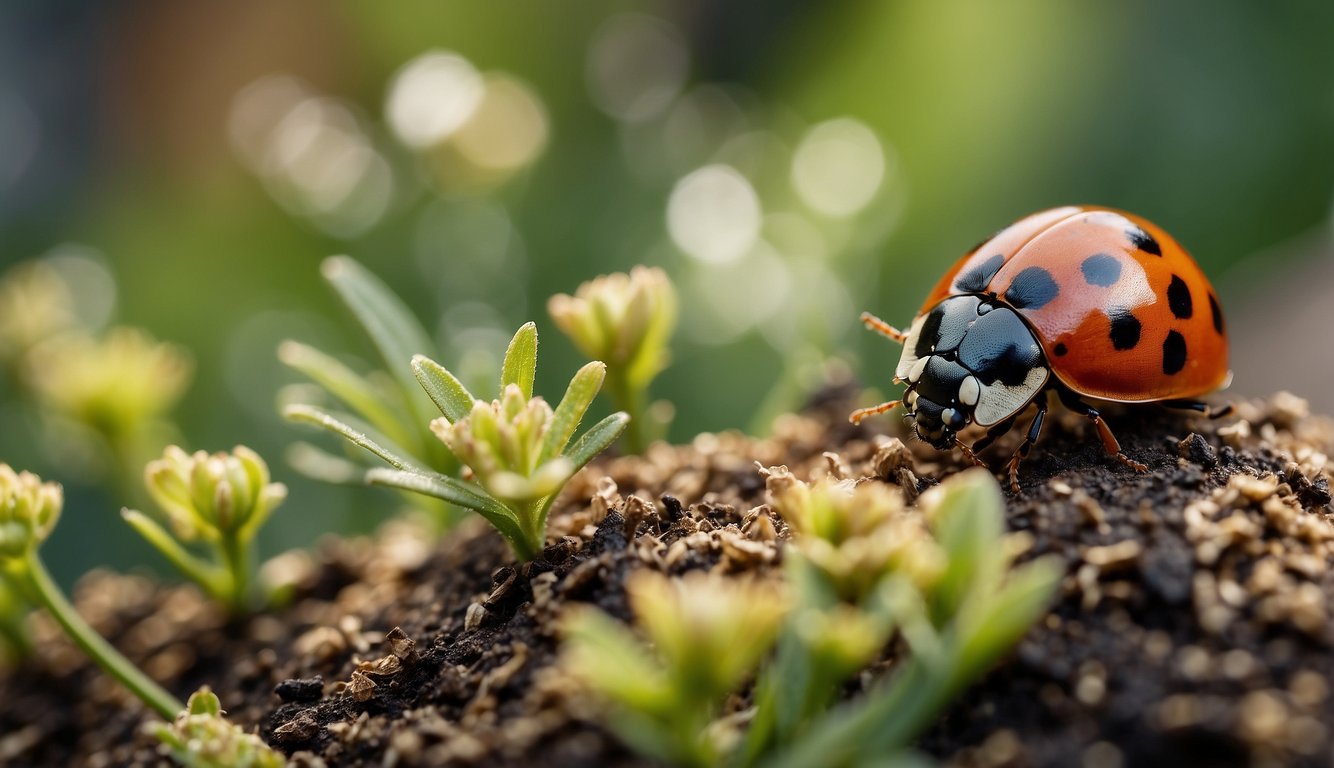
As advocates of sustainable pest control, we believe that prevention is always better than cure. Preventive measures are essential to maintain a sustainable and pest-free environment. By implementing these measures, we can minimize the risk of infestations and the need for harsh chemical treatments.
A pest management plan is an essential tool for farmers and other growers to manage pests effectively. The plan should include an integrated pest management (IPM) approach that focuses on pest prevention, pest reduction, and the elimination of conditions that lead to pest infestations. IPM is a science-based, strategic approach for managing insects, rodents, or other vectors. It uses a variety of pest management techniques that are safe for the environment and human health.
The Environmental Protection Agency (EPA) recommends that growers use IPM to reduce the use of pesticides and promote healthy plants. The EPA encourages growers to use non-chemical methods of pest control whenever possible. For example, growers can use physical barriers, such as screens or nets, to keep pests out of crops. They can also use biological control methods, such as introducing natural predators or parasites of pests.
Resistance to pesticides is a growing concern in the pest control industry. Overuse of pesticides can lead to the development of resistance in pests, making it difficult to control them. By using IPM and reducing the use of pesticides, we can help prevent the development of resistance in pests.
Safety is a top priority in sustainable pest control. We always use safe and environmentally friendly methods to control pests. We also take precautions to ensure that our methods do not harm beneficial insects or other non-target organisms.
In conclusion, preventive measures are essential for sustainable pest control. By implementing an integrated pest management plan that focuses on pest prevention, pest reduction, and the elimination of conditions that lead to pest infestations, we can promote healthy plants and reduce the need for harsh chemical treatments.
DIY Pest Control Recipes and Techniques
As part of our efforts towards sustainable pest control, we have researched and tested various DIY pest control recipes and techniques that are safe, effective, and environmentally friendly. Here are some of our favorite recipes and techniques:
Garlic Spray
Garlic spray is a simple and effective natural pesticide that can repel a wide range of pests, including aphids, spider mites, and whiteflies. To make garlic spray, simply crush a few garlic cloves and steep them in hot water for several hours. Strain the mixture and add a few drops of dish soap. Pour the mixture into a spray bottle and apply it to the affected plants. Garlic spray works by repelling pests with its strong odor.
Vegetable Oil Spray
Vegetable oil spray is another effective DIY pest control recipe that can smother and kill soft-bodied pests such as aphids, spider mites, and thrips. To make vegetable oil spray, mix one cup of vegetable oil with one tablespoon of dish soap. Shake the mixture well and dilute it with one quart of water. Pour the mixture into a spray bottle and apply it to the affected plants. Vegetable oil spray works by suffocating pests with a thin film of oil.
Soap Spray
Soap spray is a versatile and easy-to-make insecticide that can kill a wide range of pests, including aphids, spider mites, and mealybugs. To make soap spray, mix one tablespoon of dish soap with one quart of water. Pour the mixture into a spray bottle and apply it to the affected plants. Soap spray works by disrupting the cell membranes of pests, causing them to dehydrate and die.
Neem Oil Spray
Neem oil spray is a natural pesticide that can repel and kill a wide range of pests, including aphids, spider mites, and whiteflies. To make neem oil spray, mix two teaspoons of neem oil and one teaspoon of dish soap with one quart of warm water. Shake the mixture well and pour it into a spray bottle. Apply the mixture to the affected plants. Neem oil spray works by disrupting the hormonal system of pests, causing them to stop feeding and reproducing.
Natural Pesticides
In addition to these DIY pest control recipes, there are many natural pesticides that can be used to control pests in a sustainable way. Natural pesticides include diatomaceous earth, which can kill pests by drying out their exoskeletons, and pyrethrin, which is derived from chrysanthemum flowers and can kill a wide range of pests. When using natural pesticides, it is important to follow the instructions carefully and avoid overuse, as they can also harm beneficial insects and pollinators.
By using these DIY pest control recipes and techniques, we can control pests in a sustainable way without harming the environment or our health.
Conclusion
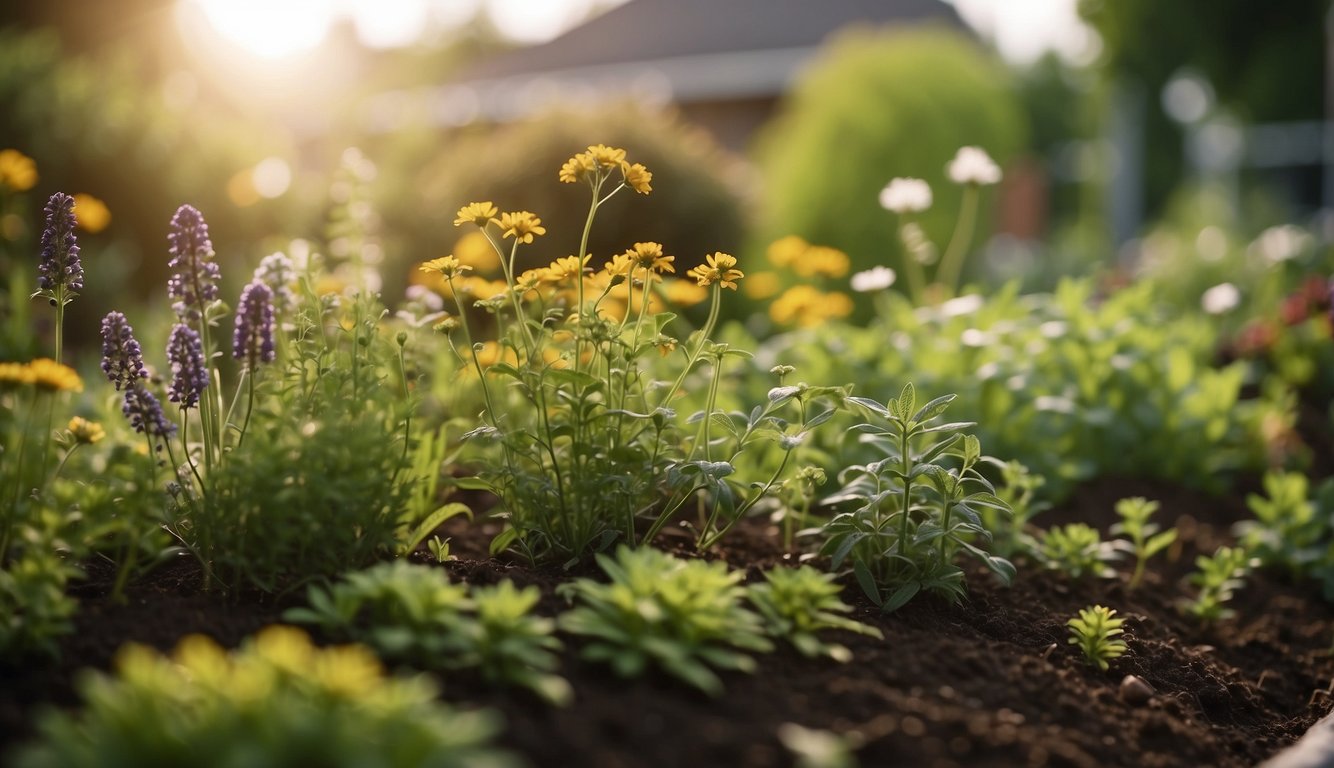
In conclusion, we believe that sustainable pest remedies are the way forward. By adopting a comprehensive approach that includes accurate pest identification, regular monitoring, and informed decision-making, we can reduce our reliance on harsh chemicals and synthetic chemical pesticides.
We understand that families and pets are a top priority, and we recommend using natural and non-toxic methods that are safe for both. Integrated Pest Management (IPM) is a science-based, strategic approach for managing insects, rodents, or other vectors. It uses a variety of pest management techniques that focus on pest prevention, pest reduction, and the elimination of conditions that lead to pest infestations.
We also recognize the importance of protecting wildlife and preventing water contamination. By using eco-friendly pest control methods, we can ensure that our actions do not harm the environment or disrupt the natural balance of ecosystems.
In summary, we encourage everyone to consider sustainable pest remedies as a viable alternative to traditional pest control methods. By taking a proactive approach and embracing eco-friendly solutions, we can create a healthier and safer environment for ourselves and future generations.
Frequently Asked Questions
What are some effective natural pest control methods for home gardens?
There are several effective natural pest control methods that can be used in home gardens. One of the most effective methods is companion planting, which involves planting certain types of plants that will keep pests away from other plants. Other effective methods include using insecticidal soap, neem oil, and diatomaceous earth. These methods are safe and effective alternatives to chemical pesticides.
How can agricultural pest control be managed sustainably?
Sustainable agricultural pest control can be managed by using integrated pest management (IPM) techniques. IPM involves using a combination of natural pest control methods, such as crop rotation, companion planting, and biological control, along with chemical pesticides as a last resort. This approach helps to reduce the use of harmful pesticides while still maintaining crop yields.
What are the best homemade pest control solutions?
There are several homemade pest control solutions that can be effective for controlling pests in and around the home. Some of the most effective solutions include using vinegar, baking soda, and essential oils. These natural ingredients can be used to create a variety of pest control solutions that are safe and effective.
Which natural pest repellent is most effective for indoor use?
One of the most effective natural pest repellents for indoor use is peppermint oil. Peppermint oil can be used to repel a variety of pests, including ants, spiders, and mice. Other effective natural pest repellents for indoor use include cedar oil, lemon eucalyptus oil, and lavender oil.
How can pest control be made more eco-friendly in urban settings?
Pest control can be made more eco-friendly in urban settings by using natural pest control methods, such as companion planting, biological control, and physical barriers. Additionally, using eco-friendly pest control products, such as insecticidal soap and neem oil, can help to reduce the use of harmful chemicals in urban environments.
What natural products are recommended for pest control in agriculture?
Several natural products are recommended for pest control in agriculture. These include diatomaceous earth, neem oil, and insecticidal soap. These natural products are effective at controlling a variety of pests while being safe for the environment and human health.

